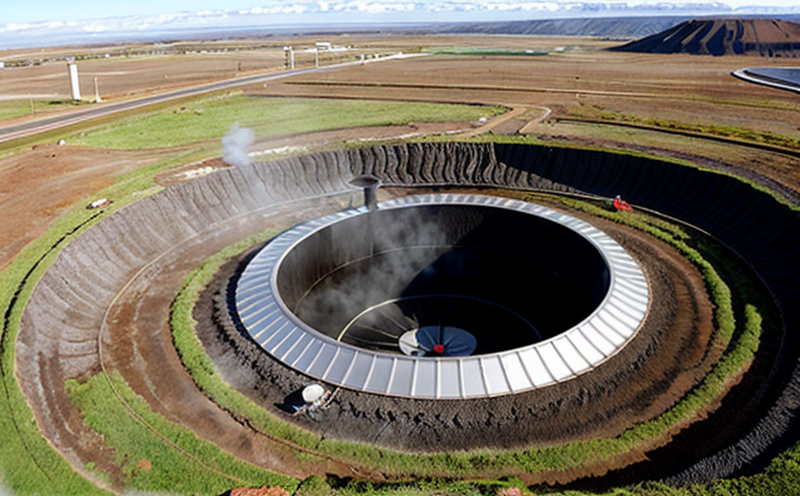ASTM G48 Pitting Corrosion Resistance Testing in Geothermal Alloys
The ASTM G48 pitting corrosion resistance test is a critical procedure used to evaluate the susceptibility of materials, particularly those utilized in geothermal energy systems. This testing ensures that alloys and metals can withstand aggressive environments typically found within geothermal plants. The test involves immersing specimens into a solution designed to mimic geothermal fluids while maintaining controlled parameters such as temperature, pressure, and chloride concentration.
The primary objective of the ASTM G48 test is to identify pitting corrosion susceptibility, which can lead to premature failure in critical components like heat exchangers, piping systems, and pumps. This form of localized corrosion can significantly reduce the operational life of geothermal equipment, leading to increased maintenance costs and downtime.
The testing process requires precise control over environmental conditions due to the corrosive nature of geothermal fluids. These fluids are typically rich in chloride ions and have high temperatures and pressures. The ASTM G48 test helps ensure that materials used in these systems can meet stringent performance requirements, thereby enhancing reliability and safety.
Preparation of specimens for this test is critical to ensuring accurate results. Specimens must be free from surface defects and prepared according to the specified standards. This involves cleaning, etching if necessary, and marking the specimens accurately. Once prepared, they are exposed to the corrosive solution under controlled conditions.
The acceptance criteria for ASTM G48 testing involve a visual inspection of the specimens after exposure. Any pitting or other forms of localized corrosion that exceed specified limits indicate a failure in the material's resistance to pitting corrosion. This test is essential for materials selection, as it helps identify suitable alloys and metals for geothermal applications.
The ASTM G48 test is widely recognized and used by quality managers, compliance officers, R&D engineers, and procurement specialists involved in the development of geothermal systems. Its application ensures that components are not only durable but also environmentally sustainable, contributing to the broader goals of renewable energy adoption.
Applied Standards
The ASTM G48 test is based on the standard practice for determining pitting corrosion resistance in stainless steel by means of a salt spray test. This method has been adapted and modified to suit the specific conditions encountered in geothermal systems. The key elements include:
- Controlled temperature and pressure to simulate real-world operating conditions.
- Use of chloride-containing solutions that mimic geothermal fluids.
- Visual inspection for pitting or other forms of localized corrosion.
The ASTM G48 test is one of several standards used in the evaluation of materials for geothermal systems. It complements other tests such as ASTM G152, which focuses on accelerated laboratory testing to assess material resistance to soil and seawater corrosions.
Why Choose This Test
- Precision in Material Selection: Ensures that the materials used are capable of withstanding harsh geothermal conditions, reducing the risk of premature failure.
- Enhanced Safety and Reliability: By identifying materials prone to pitting corrosion, this test contributes to safer and more reliable geothermal systems.
- Sustainability: Selecting suitable alloys helps in extending the operational life of equipment, reducing waste and resource consumption.
The ASTM G48 test is indispensable for quality managers and R&D engineers working on the development and maintenance of geothermal systems. It provides a reliable method to evaluate materials under controlled conditions that closely mimic actual operating environments.
Environmental and Sustainability Contributions
The ASTM G48 test plays a crucial role in promoting environmental sustainability by ensuring the longevity and reliability of geothermal systems. By selecting materials resistant to pitting corrosion, this test supports the efficient operation of geothermal plants, which are key contributors to renewable energy production.
- Reduced Carbon Footprint: Longer-lasting equipment means less frequent replacements, leading to lower emissions associated with manufacturing and transportation.
- Resource Efficiency: The test helps in optimizing the use of raw materials, reducing waste and minimizing environmental impact.
The ASTM G48 pitting corrosion resistance testing is a vital component in ensuring that geothermal energy systems meet high standards of performance and reliability. This contributes to the broader goals of sustainable development and renewable energy adoption.





